2015 in Review: another productive year for the Skeptical Science team
Posted on 29 December 2015 by BaerbelW
2015 has been yet another very productive year for the all volunteer Skeptical Science team. From publishing scientific papers to co-producing a MOOC we were kept rather busy throughout the year. This post is a wrap-up of what all we’ve been up to and includes these sections:
Scholarly Publications and books
Other publications and activities
Scholarly Publications and books
As in previous years, members of the SkS-team contributed to ongoing scientific research and (co)authored several important papers, published books and a book chapter.
Kevin Cowtan published a paper (Cowtan et al. 2015) which showed that global climate models are even more accurate than previously thought. Several members of the SkS-team were among the co-authors: Zeke Hausfather, Peter Jacobs, Martin Stolpe and Robert Way.
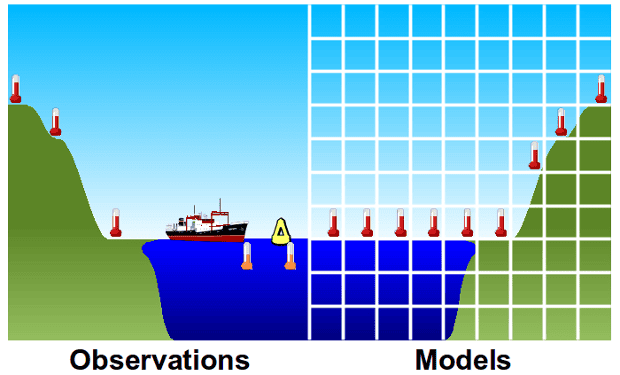
A depiction of how global temperatures calculated from models use air temperatures above the ocean surface (right frame), while observations are based on the water temperature in the top few metres (left frame). Created by Kevin Cowtan.
Dana Nuccitelli and John Cook were co-authors on Benestad et al. (2015) which found common errors among the 3% of climate papers that reject the global warming consensus.
John Cook published Misinformation and How to Correct It (Cook et al. 2015) a multi-discplinary review of misinformation research. He was asked to anticipate where future research into misinformation might head - which is a tough ask. He approached it creatively by answering the question what he would like to research in the future.
John also is a co-author on Recurrent Fury: Conspiratorial Discourse in the Blogosphere Triggered by Research on the Role of Conspiracist Ideation in Climate Denial (Lewandowsky et al. 2015) which examined the comments on climate science-denying blogs and found strong evidence of widespread conspiratorial thinking. The study looks at the comments made in response to a previous paper linking science denial and conspiracy theories.
In "Misdiagnosis of earth climate sensitivity based on energy balance model results" Mark Richardson - together with Zeke Hausfather, Dana Nuccitelli, Ken Rice and John P. Abraham - explained the many shortcomings in Monckton et al. (2015). They found that differences could be explained because Monckton et al. relied a lot on a narrative approach (aka storytelling) while most other studies use physics and real-world measurements where possible.
Dana N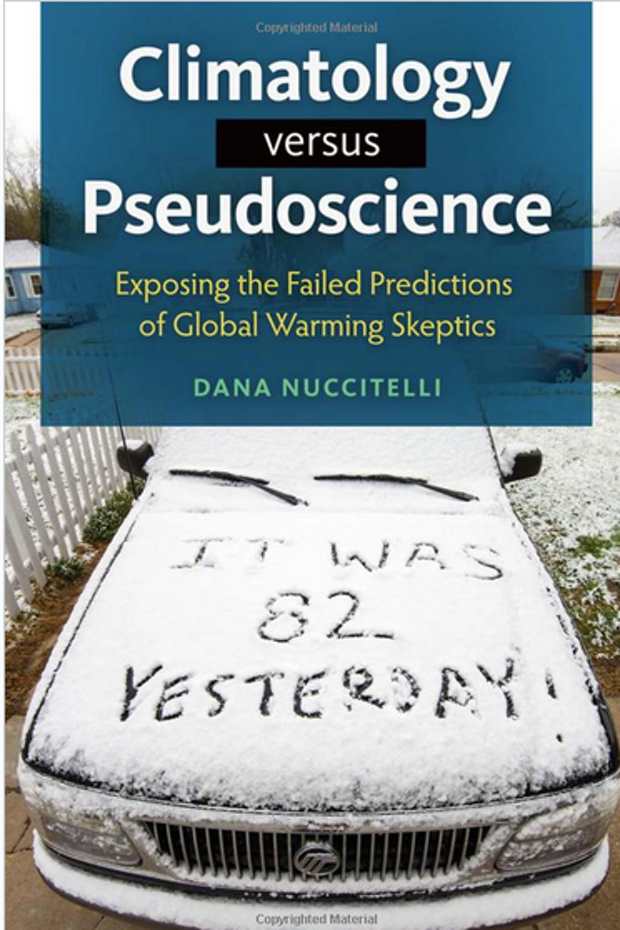 uccitelli wrote and published the book Climatology versus Pseudoscience: Exposing the Failed Predictions of Global Warming Skeptics which covers a wide range of climate-related topics, starting with a history of some key discoveries in the field of climate science beginning nearly 200 years ago. Along the way it debunks some common climate myths, progressing forward in time to the 1970s, when scientists’ ability to model the global climate began to advance rapidly. It examines the accuracy of a variety of global warming projections, starting with J.S. Sawyer in 1972, through the recent IPCC reports, as well as some predictions by contrarians like Richard Lindzen.
uccitelli wrote and published the book Climatology versus Pseudoscience: Exposing the Failed Predictions of Global Warming Skeptics which covers a wide range of climate-related topics, starting with a history of some key discoveries in the field of climate science beginning nearly 200 years ago. Along the way it debunks some common climate myths, progressing forward in time to the 1970s, when scientists’ ability to model the global climate began to advance rapidly. It examines the accuracy of a variety of global warming projections, starting with J.S. Sawyer in 1972, through the recent IPCC reports, as well as some predictions by contrarians like Richard Lindzen.
Howard Lee published the book “Your Life as Planet Earth - A new way to understand the story of the Earth, its climate and our origins” which is a fast-paced telling of the twists and setbacks of our planet’s evolution, using the metaphor of a human life to show how the strands of climate, evolution, tectonics and cosmic events tangled through time to drive changes in life and climate.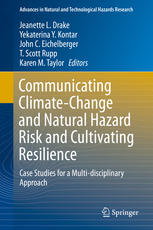
Last but not least the old myth about the alleged name change from “global warming” to “climate change” was put to rest by Peter Jacobs, Ari Jokimäki, Ken Rice, Sarah A. Green and Bärbel Winkler with their chapter “Polluted Discourse: Communication and Myths in a Climate of Denial” published in the book Communicating Climate-Change and Natural Hazard Risk and Cultivating Resilience (Jacobs et al. 2016).
Our consen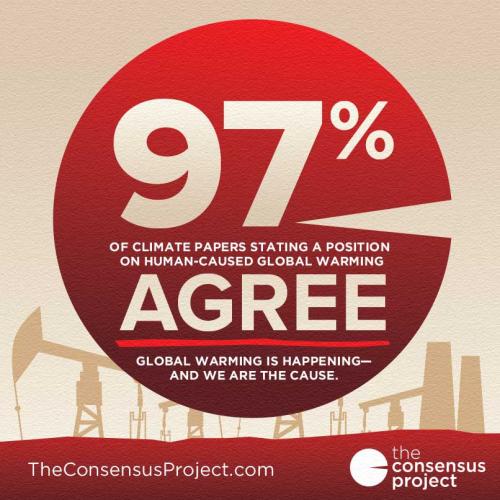 sus paper (Cook et al. 2013) and the related 97% still gets mentioned - and baselessly attacked - a lot. It is regularly refered to in speeches by Barack Obama, John Kerry or - very recently at COP21 - by David Cameron. Much to our surprise, the number of downloads - according to the publisher’s website - don’t show any sign of petering out. Quite the opposite seems to be happening: more than 2 ½ years after being published, the paper still gets downloaded between 10,000 and 15,000 times per month and currently stands at a staggering 437,000+ downloads. The paper also consistently shows up at (or very near) the top of the most read papers in the last 30 days on the homepage of Environmental Research Letters. Most of the other papers on that list are from 2015.
sus paper (Cook et al. 2013) and the related 97% still gets mentioned - and baselessly attacked - a lot. It is regularly refered to in speeches by Barack Obama, John Kerry or - very recently at COP21 - by David Cameron. Much to our surprise, the number of downloads - according to the publisher’s website - don’t show any sign of petering out. Quite the opposite seems to be happening: more than 2 ½ years after being published, the paper still gets downloaded between 10,000 and 15,000 times per month and currently stands at a staggering 437,000+ downloads. The paper also consistently shows up at (or very near) the top of the most read papers in the last 30 days on the homepage of Environmental Research Letters. Most of the other papers on that list are from 2015.
Several more publications are currently in the works and we’ll let you know about them once they’ve been published.
Other publications, activities and tools worth highlighting
We published more than 400 blog posts on Skeptical Science of which around 180 were articles written by about 20 SkS-authors, John Hartz put together 140 weekly digests and news roundups and about 80 articles were reposts from elsewhere.
Kevin Cowtan made the Denial101x temperature tool readily available via SkS so that anybody can now check and debunk misinformation about the historical temperature record for themselves. Kevin also put together and published an assessment about the homogenization of temperature data and together with Zeke Hausfather wrote an article about a buoy-only sea surface temperature record which supports NOAA’s adjustments.
Rob Honeycutt started a new series “Tracking the 2C Limit” in July with updates posted once a month since then.
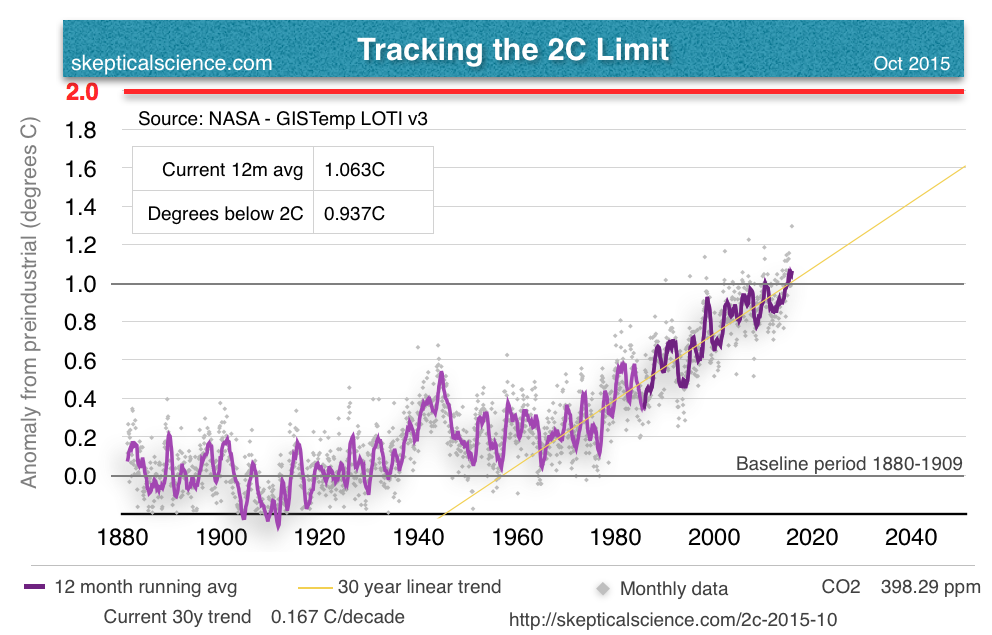

Several posts written by John Mason and Howard Lee took us back in time describing the reasons for the greatest mass extinctions, What did in the dinosaurs and what Siberian traps, CO2 and climate change had to do with those. Howard also wrote The Ghosts of Climate Past, Present and Future a creative adaptation of Charles Dickens' Christmas Carol.
In September we published a Reader Survey to ask for your feedback about SkS and many of you provided helpful comments. We still need to go through your many suggestions to see what and when we’ll be able to incorporate.
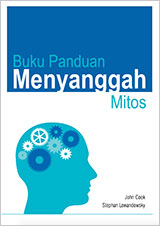 Translations of The Debunking Handbook into Indonesian, Icelandic and Hungarian brought the number of these translations up to 10. Several blog posts and rebuttals were translated into different languages during the year as well. We can always use help with translations so here is Your chance to make a difference.
Translations of The Debunking Handbook into Indonesian, Icelandic and Hungarian brought the number of these translations up to 10. Several blog posts and rebuttals were translated into different languages during the year as well. We can always use help with translations so here is Your chance to make a difference.
Skeptical Science authors also wrote articles for many other outlets, often being asked for specific articles or having regular blogs there. Here is a sample:
Dana Nuccitelli and John Abraham take turns writing for The Guardian’s “Climate Consensus - the 97%” blog. Andy Skuce is writing articles for Corporate Knights, DeSmog Canada, and recently talked about climate change in a radio show. John Cook regularly writes for The Conversation and gets asked to provide articles at sites like CNN.
Material from Skeptical Science also finds its way into a wide variety of output, from University Curriculum, MOOCs, Textbooks, Scholarly Papers, Public Talks to Radio & TV, not to mention newspapers and blogs. For a sample, check out our Republisher Page.
Co-producing and running the Denial101x MOOC
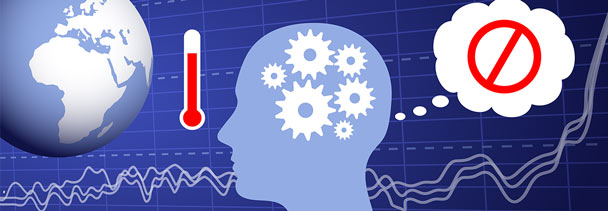
Together with the UQx team of the University of Queensland we pulled off one of our biggest projects thus far: the massive open online course (MOOC) “Denial101x - Making sense of climate science denial”. Many months in the making, Denial101x started on April 28 and peaked at more than 17,000 enrolled students from more than 160 countries. After 7 weeks the course ended successfully in mid-June and a second iteration started just two weeks later as a self-paced version with about 4,000 students enrolled at the moment. You can also watch all the lectures and interviews on YouTube if you don’t want to take the MOOC itself (but you’ll lose out on many interactive activities, quizzes and forum discussions then!).
Watch this video to get an idea what Denial101x is about:
Conferences
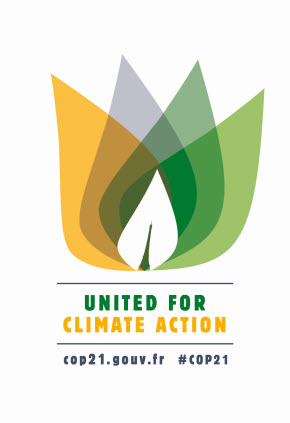 In October, John Cook gave a presentation about Science communication strategies in response to climate denial at a climate change conference in Mexico City. In addition, he travelled to Paris in July and December to capture footage and interviews with experts in the fields of climate science and solutions.
In October, John Cook gave a presentation about Science communication strategies in response to climate denial at a climate change conference in Mexico City. In addition, he travelled to Paris in July and December to capture footage and interviews with experts in the fields of climate science and solutions.
A smaller team than in previous years made it to this year’s AGU Fall meeting in San Francisco to give presentations. Keah Schuenemann talked about Using “Making Sense of Climate Science Denial” MOOC videos in a college course (Link to PDF), Dana Nuccitelli also talked about our Successful Massive Open Online Climate Course on Climate Science and Psychology (Link to PDF) and Zeke Hausfather presented Robust Comparison of Climate Models with Observations Using Blended Land Air and Ocean Sea Surface Temperatures (Link to PDF) and Bounding the climate viability of natural gas as a bridge fuel to displace coal (Link to PDF).
Social Media
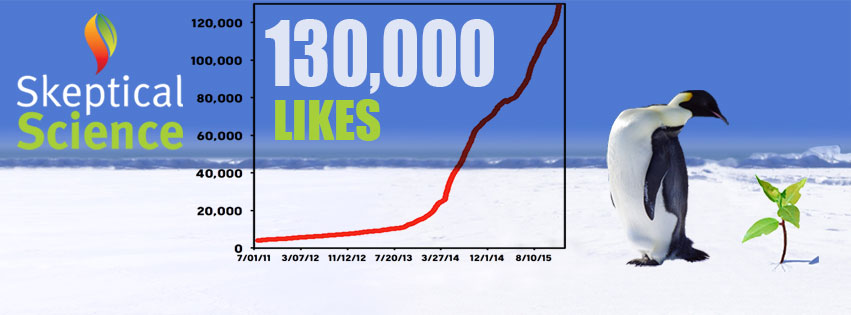
In August, our Facebook page passed 100,000 likes and has been going full steam ahead since then with currently 130,000+ likes. Considering that two years ago, the page had “only” 16,000 likes, this is quite an impressive increase! We are fairly certain that one reason for this steady growth is the work put in by John Hartz, one of our most tireless teammembers who makes sure that interesting articles get posted throughout the day.
On Twitter we have 11,600+ followers, up from 8,500 two years ago (so there’s lots of room for improvement compared to Facebook!).
Personal Note
Let me end with a personal note: Skeptical Science is a big team effort and I always find it amazing what our global team of volunteers is getting done in the course of a year! We’ll try our best to keep this up in the year(s) to come.































 Arguments
Arguments






























Thanks, SkS features on a yammer site at my school and is starting to attract attention from (mostly highschool) students. It has also been very useful in providing links to resources from othe sites.
Here in the Midwest of the USA we are less than 48 hrs away from knocking off 2014 as the warmest year on record globally. In 135 years of records we have never broken the global temperture record two years in a row. A question for those who deal in probabilities
What are the odds/probabability of the global temperature record being broken 2 years in a row? (I'm sure it is greater than 1 in 135)
Also since the 'downside' year of an el Nino is usually warmer than the 'upside' year what is the probability of the record being broken 3 years in a row?
Fits better here than the news roundup, so reposting this snippet here:
I just donated (twice the amount of last year). You folks deliver an incredible source on climate change and I at least want to help cover costs of the site. I recently took a german online course on climate science to evaluate links and material and of course there were deniers. What would I have done without this site? I painfully remember the days before I came to know it. Deep bowing and a happy new year!
Thanks Jonas (@3) for your feedback and donation! Also thanks for tirelessly plugging Skeptical Science in that German MOOC you mentioned - I noticed the many threads and comments you posted there to counter those who continuously tried to spread FUD (fear, uncertainty and doubt).
Happy new year to you too!